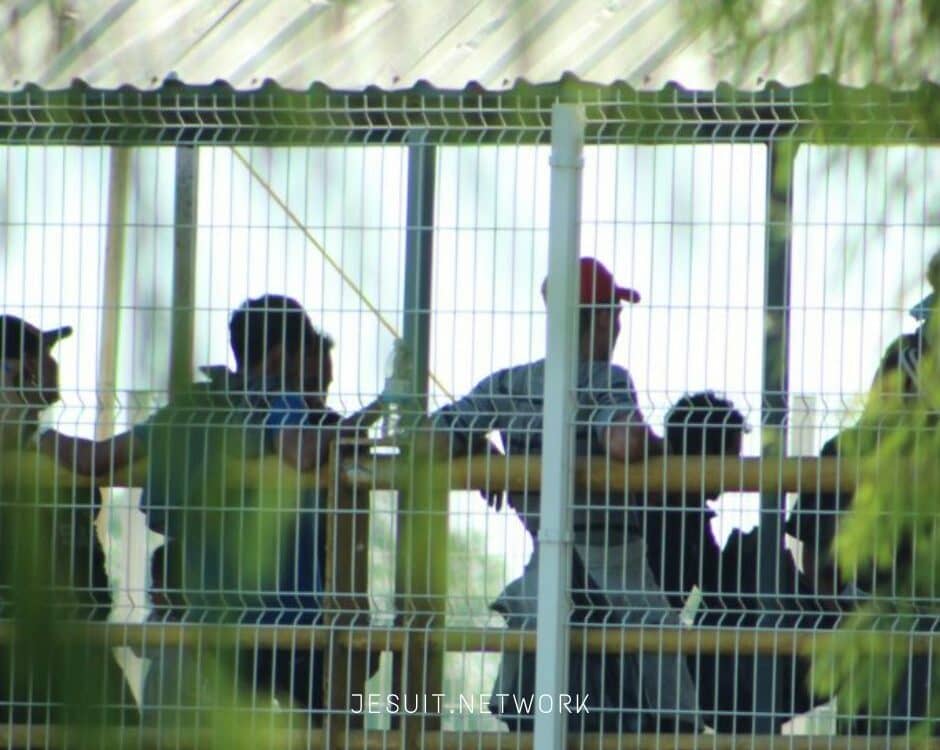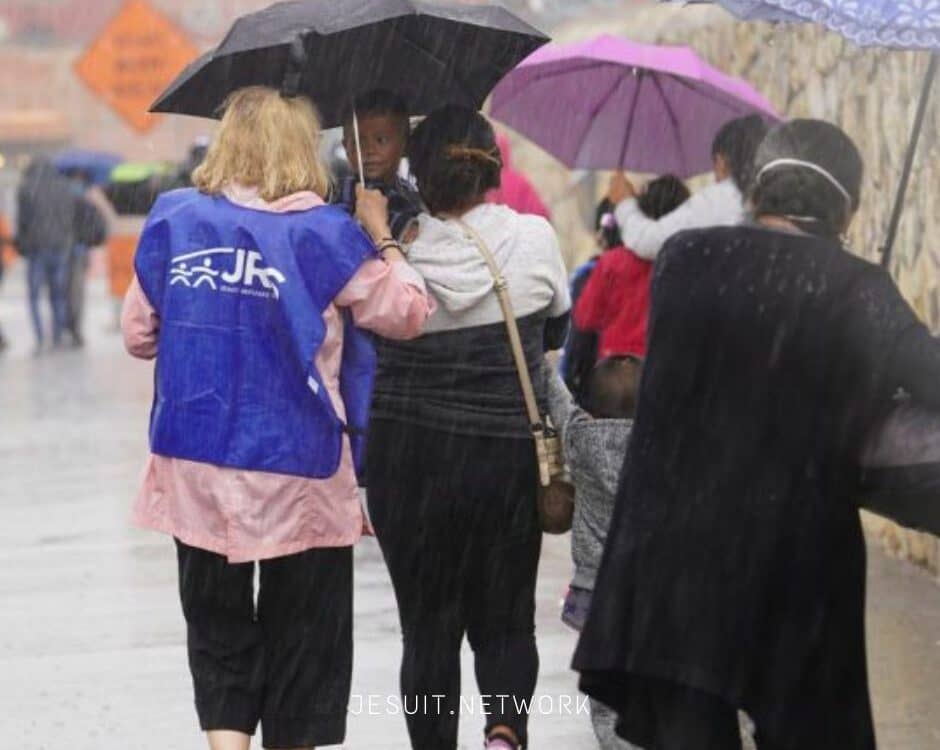This website uses cookies so that we can provide you with the best user experience possible. Cookie information is stored in your browser and performs functions such as recognising you when you return to our website and helping our team to understand which sections of the website you find most interesting and useful.
The legacy of Fr Arrupe in today’s crisis of solidarity
The Jesuit Refugee Service (JRS) was founded by Fr Pedro Arrupe SJ on 14 November 1980 in response to the plight of Vietnamese people seeking to escape their homeland by boat, and also to aid refugees fleeing Ethiopia, Somalia, Cambodia, and Laos. There were close to 8.5 million refugees in the world in 1980; that number has grown to 22.5 million today, with a further 40 million people displaced in their own countries. At the same time, global solidarity with refugees has suffered a precipitous decline. In 1980 the United States admitted more than 207,000 refugees; in 2017, with global displacement numbers at record highs, the US resettled just slightly over 53,000 refugees. Across the Atlantic, Europe has essentially slammed its doors shut on refugees and migrants.
Fr Michael Campbell Johnson SJ, who directed the work of JRS in its first years, describes a meeting of Jesuits working with refugees in Thailand with Fr Arrupe in 1981, where a clear consensus emerged on what would distinguish JRS from other refugee agencies: “Our way of proceeding should consist essentially in a ministry of presence and sharing, of being with rather than doing for.” This original intuition remains as central to how JRS works today as it was at our foundation, and finds expression in the mission of JRS in the word “accompaniment”. Fr Mark Raper SJ, former international director of JRS, has described this accompaniment as the welcome given to a guest, a recurring theme in the Bible. Fr Raper argues that the quality of our welcome to the stranger as a messenger of God is the key criterion for the authenticity of JRS’s pastoral care for, and service to, refugees.
In 2005, on the occasion of the 25th anniversary of the founding of the JRS, Fr Raper noted that each new humanitarian crisis provokes new initiatives. Elsewhere, he has cited Rowan Williams, the former archbishop of Canterbury, on the vision of Fr Arrupe: “In the face of unspeakable inhumanities, Pedro Arrupe was able to witness to the humanism, the depth of hope, which is the proper contribution of Christians to culture and politics and ecumenism.”
It is this depth of hope that continues to animate and sustain JRS in 2017. Pope Francis’s stewardship of the Church is a time of grace and opportunity for all who seek to engage with the challenges faced by our displaced sisters and brothers. This is a privileged moment for JRS as we explore more effective ways to carry out our mission of accompanying the refugee, of welcoming the stranger. Pope Francis has placed solidarity with refugees and migrants at the very heart of his mission, and has urged all who will listen to take on the task of welcoming, protecting, promoting, and integrating refugees and migrants. In the place of the globalisation of indifference, and the politics of rejection and fear, Pope Francis has repeatedly called for a culture of encounter instead. For Pope Francis, there is no “refugee crisis”; the real crisis is the crisis of solidarity, the refusal of men and women to open their doors to the knocking of those without a home, and to open their hearts to their sisters and brothers in need.
Pope Francis welcoming migrants. (Jesuit Refugee Service)
Refugees go on the move to defend their families, to preserve a future for their children, and to find a place where their rights may be protected. In living its mission of accompanying refugees, JRS also cannot but be on the move itself. It is always tempting to rest on past achievements, and to find comfort in familiar ways of working. In our education programmes, in our pastoral accompaniment, in our seeking out of partnerships and alliances, in our administrative structures and external communications, JRS hopes to go beyond our own securities and certainties, keeping always before us the lives and hopes of the people whom we encounter, who urgently desire to say to us and to the world, “I was a stranger, and you welcomed me.”
Post originally adapted from the Jesuit Refugee Sevice website.





